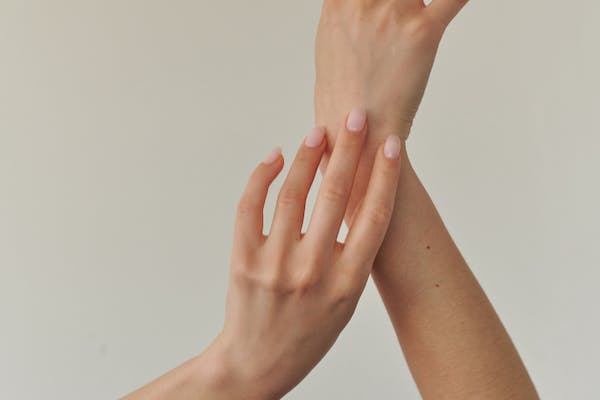Whether you’re tidying up your arms and legs, removing a little back hair, or going for a full Brazilian, there’s one question at the top of everyone’s list: “how long does waxing last?”. After all, clients wonder if going through the temporary discomfort is worth it. They want their silky-smooth skin to last forever.
Nothing lasts forever; even the best waxing session with the finest estheticians won’t last more than six weeks. However, the level of hair regrowth people see depends on several important factors. From genetics to diet, predicting when you’ll next need a waxing session is a little bit of a challenge – we’re all unique.
Below we’ll explain how long does waxing last, and we’ll answer any other relevant questions.
How long does waxing last?
Most of us wax to save time. Instead of endlessly plucking and pruning our lips, eyebrows, or underarms, we opt for waxing. We can expect to see some mild hair regrowth in the three to four weeks after the session in most locations.
You should also consider how often you go for waxing. If you’re a frequent waxer, say, every two to four weeks, then almost all your hair will have been removed from the root. Because you’ve disrupted every hair during its producing stage, your skin will likely stay hair-free for longer. You’ll also notice hair follicle damage over time, gradually reducing hair growth.
While these are good general rules, individuals will differ widely in regrowth time based on genetics, hormone level, general health, and waxing area.
The type of wax used – hard or soft – should not affect the time length. However, hard wax does remove hairs as small as 1/6 of an inch.
Factors affecting waxing longevity
-
Waxing area
Your hair doesn’t grow the same amount everywhere on your body. Your hair regrowth on your legs, for example, is less coarse and noticeable than on your eyebrows or underarms. That’s because different hairs grow at different rates.
Your face and eyebrows should last around 2 to 3 weeks. Because of the faster regrowth rate, you’ll often notice hair regrowth here before anywhere else. Your arms are also likely to see regrowth within a 2-to-3-week period.
In contrast, full-body waxes or intimate waxes can last for up to a whole month – as hair here grows slower. So, if you’ve ever wondered “how long do Brazilian waxes last”, now you know.
-
DIY vs professional waxing
Waxing, like any skill, takes practice. Professional waxing estheticians not only reduce the pain of waxing they also remove more hairs. By applying the waxing methodically, they ensure no missed hairs or damaged skin – and they use the highest quality wax available.
Waxing at home can lead to ripped skin and a greater risk of in-grown or broken hairs. The length of hair, the type of wax used, the quality of wax used, and the technician’s skill all can affect whether the hair will break.
Breakage occurs when the wax fails to pull the hair out at the root. Because it broke at surface level, the hair will grow back faster – reducing the time between sessions.
If in doubt, trust a professional.
-
Genetics
There’s nothing a technician can do about genetics. If you’re from a family where hair growth is thick, coarse, and fast-growing, it’ll do so no matter what.
While some lifestyle factors can affect your hair growth and quality, e.g., diet, smoking, exercise, and sleep, you can’t slow down hair growth without impacting your overall health.
How does waxing compare to other temporary hair removal techniques?
Waxing isn’t the only form of temporary hair removal. Given its discomfort, you’ll want to pick the technique that minimizes your pain while providing longer-term results.
- Shaving removes the hair solely above the skin’s surface. With the root and hair still intact, regrowth can occur in a couple of days to a week, depending on your growth speed.
- Sugaring refers to using a combination of sugar, lemon, and water to remove hair. It’s considered less painful than waxing, being better suited to sensitive skin. Sugaring typically lasts six weeks, with hairs visible from 3 to 4 weeks.
- Threading involves pulling the hair at the root. Depending on your hair thickness, it takes anywhere from 2 to 6 weeks for full hair regrowth to occur.
- Epilating removes hair from the root using an epilator. You can see similar results to waxing, with hair regrowth occurring around 3 to 4 weeks. However, epilators can also target finer, shorter hairs often neglected by soft wax.
What can you do to help results last longer?
You cannot stop hair growing back, but you can reduce hair breakage. You’ll want to ensure your hair is healthy and well-supported. Eating a diet rich in vitamin C, zinc, biotin, niacin, and iron will help nourish the hair and result in luscious growth.
Moreover, moisturize the surrounding skin. Dry or rough skin increases the risk of hair breakage while moisturizing the area or using an ingrown hair oil can prevent ingrown hairs and bumps – keeping your skin in pristine condition.
Nevertheless, when your hair reaches around ¼-inch long, you’ll need to book your next waxing appointment. Avoid poking, shaving, or plucking the hair before waxing to ensure silky-smooth results. Indeed, trimming may appear to save you time between appointments because shaving the hair reinforces its strength.
The best option is to stick to a waxing schedule. The more you wax, the more you damage hair follicles leading to a permanent result. Other options, like laser hair removal, also produce a semi-permanent decrease in hair growth.
Speak to our expert team if you are interested in exploring more permanent options.


